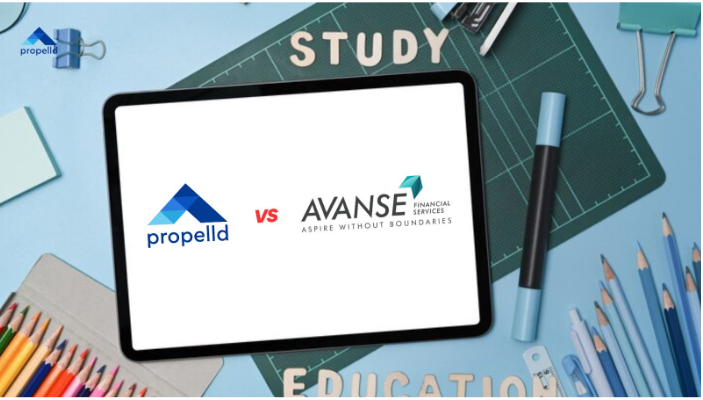Planning to pursue higher education but need financial help? A term loan for education might be your answer. This guide explains what term loans are, how they work for education, and everything you need to know about loan terms, repayment, and applying for one.
What is a Term Loan?
A term loan is a loan that you repay over a fixed period of time through regular monthly payments. When you take a term loan, you get a specific amount of money upfront, and then you pay it back bit by bit every month along with interest.
Think of it like this - you borrow money today and promise to return it in small monthly payments over the next few years. Each payment includes part of the money you borrowed plus some interest (the cost of borrowing)
Key Features of Term Loans:
1. Fixed Amount: You get a set amount of money when the loan is approved
2. Fixed Time Period: You have a specific number of years to repay
3. Regular Payments: You pay the same amount every month (called EMI)
4. Interest Rate: Can be fixed (stays same) or floating (changes with market)
5. Purpose-Specific: The loan is given for a specific reason
Is an Education Loan a Term Loan?
Yes! Education loans are a type of term loan. When you take an education loan, it works exactly like a term loan - you get money for your studies upfront, and then you repay it in monthly installments over several years.
Education loans are term loans because they have all the main features of term loans - a fixed loan amount, a set repayment period, regular monthly payments, and a specific purpose (paying for education).
Understanding Term Loan Duration for Education
The term or duration of an education term loan is how long you have to repay the money. In India, most education term loans give you anywhere from 5 to 15 years to repay. Some banks even offer up to 20 years for very large loans or international education.
What is the Maximum Term for Education Loans?
The maximum term that banks offer for education term loans is usually 15-20 years. This depends on how much you're borrowing and which bank you choose. Larger loan amounts typically get longer repayment periods.
A longer term means your monthly payment (EMI) will be smaller and easier to manage. But remember, when you take more time to repay, you end up paying more total interest over the years.
What is the Average Term of Student Loans?
In India, most students get term loans with a duration of 10-12 years. This is the average or middle ground that works well for most people. The standard student loan repayment term you'll see from most banks ranges between 5 to 15 years.
Why this range? Banks look at what you're studying, how much money you'll likely earn after graduation, and how much you're borrowing to decide the right term for you.
What Decides Your Term Loan Duration?
Several things affect how long your education term loan will be:
1. Course Duration
If you're doing a longer course like MBBS (5.5 years) or PhD (3-5 years), banks usually give you a longer repayment term compared to shorter courses like a 2-year MBA or 1-year diploma.
2. Moratorium Period (Study Break)
Here's great news - you don't have to start repaying while you're studying! Banks give you a "moratorium period" or break time. This covers your entire course duration plus an additional 6-12 months after you finish.
During this time, you can focus on studies and finding a job without worrying about loan payments. However, interest keeps adding to your loan during this period.
3. How Much You Can Repay
Banks check how much money you'll likely earn after completing your education. They make sure your monthly EMI is not too high compared to what you'll earn. This way, you can comfortably repay without financial stress.
4. Loan Amount
Bigger loans usually come with longer terms. If you're borrowing ₹20 lakhs for studying abroad, you'll likely get more years to repay than someone borrowing ₹5 lakhs for a domestic course.
5. Bank Policies
Different banks have different rules for term loans. Some are more flexible with terms, while others have stricter policies. This is why comparing multiple banks is important.
Term Loans for Short Term Courses
Short-duration courses present unique considerations when it comes to education loan terms and eligibility.
Education loans for short-term courses (typically under 1-2 years) are indeed available, though terms and conditions may differ from traditional degree programs. These courses include diploma programs, certification courses, skill development programs, and professional enhancement courses.
Loan Terms for Short Courses
- Repayment periods usually range from 3-7 years
- Shorter moratorium periods due to brief course duration
- Loan amounts may be limited compared to degree programs
- Interest rates might be slightly higher due to perceived higher risk
Application Considerations When applying for loans for short-term courses, ensure the institution and course are recognized by the lender. Many banks maintain approved lists of institutions and courses eligible for education loan financing.
How to Apply for Education Loan Term Loans?
The application process for education loans requires careful preparation and understanding of lender requirements.
Required Documents
1. Academic transcripts and certificates
2. Admission confirmation letter
3. Fee structure from the institution
4. Income proof of co-applicant/guarantor
5. Identity and address verification documents
6. Bank statements and financial records
Step-by-Step Application Process
1. Research and Compare: Evaluate different lenders' terms, interest rates, and eligibility criteria
2. Check Eligibility: Ensure you meet age, academic, and financial requirements
3. Gather Documentation: Collect all necessary documents including academic records, admission letters, and financial statements
4. Fill Application Form: Complete the loan application form accurately with all required information
5. Submit Documents: Provide all supporting documentation along with your application
6. Processing and Verification: Banks will verify your documents and assess your repayment capacity
7. Loan Approval and Disbursement: Once approved, funds are typically disbursed directly to the educational institution
Differences Between Term Loan and Working Capital Loan in Education Financing
Understanding the distinction between term loans and working capital loans helps clarify why education loans are structured as term loans.
Choosing the right education loan terms is key to managing your finances effectively. Assess course duration, repayment capacity, and long-term impact before deciding. Compare lenders and tenures carefully. For expert guidance and personalized solutions, Propelld helps you make informed choices that support your academic and financial goals.











.svg)